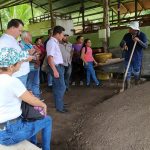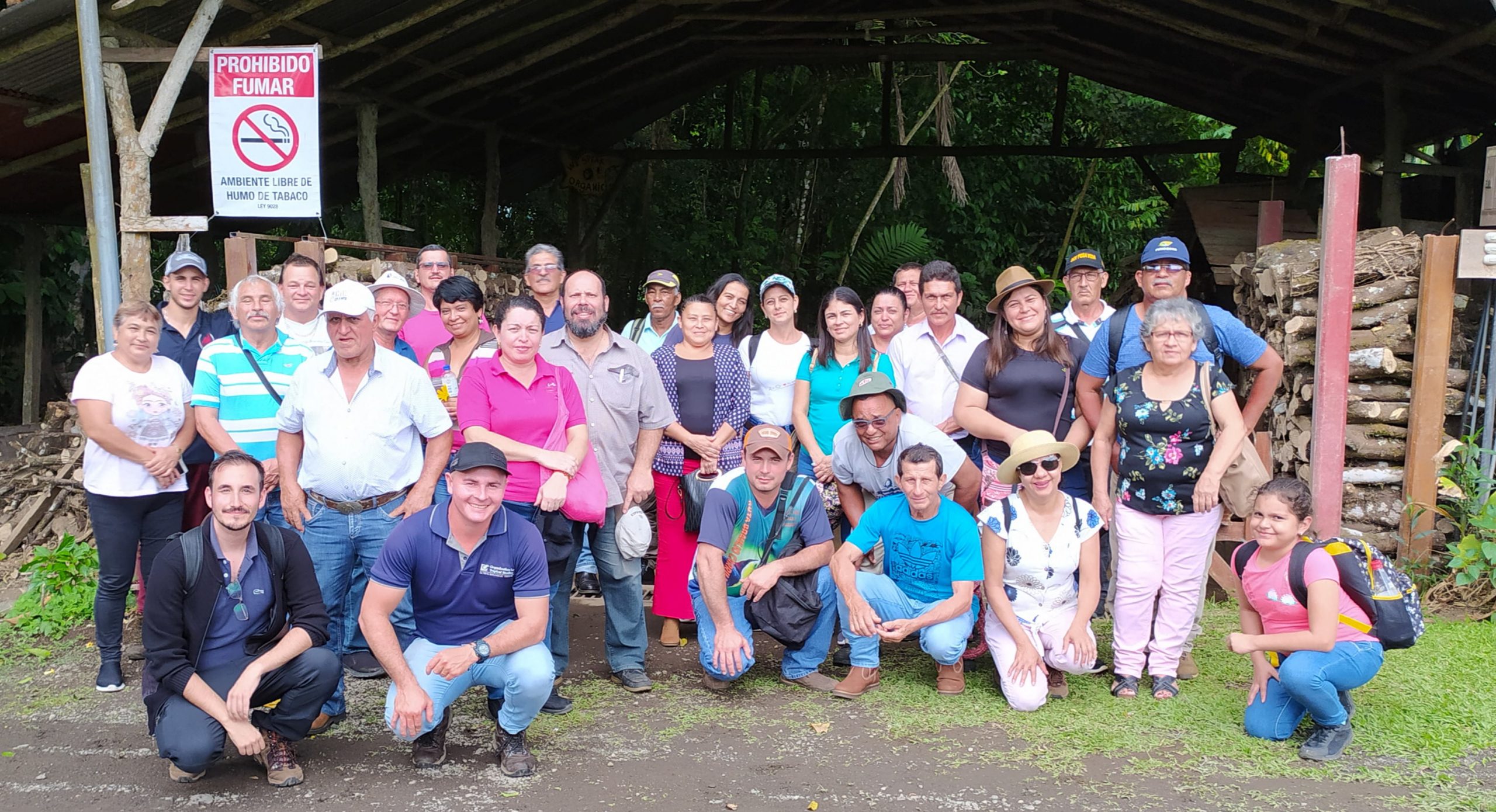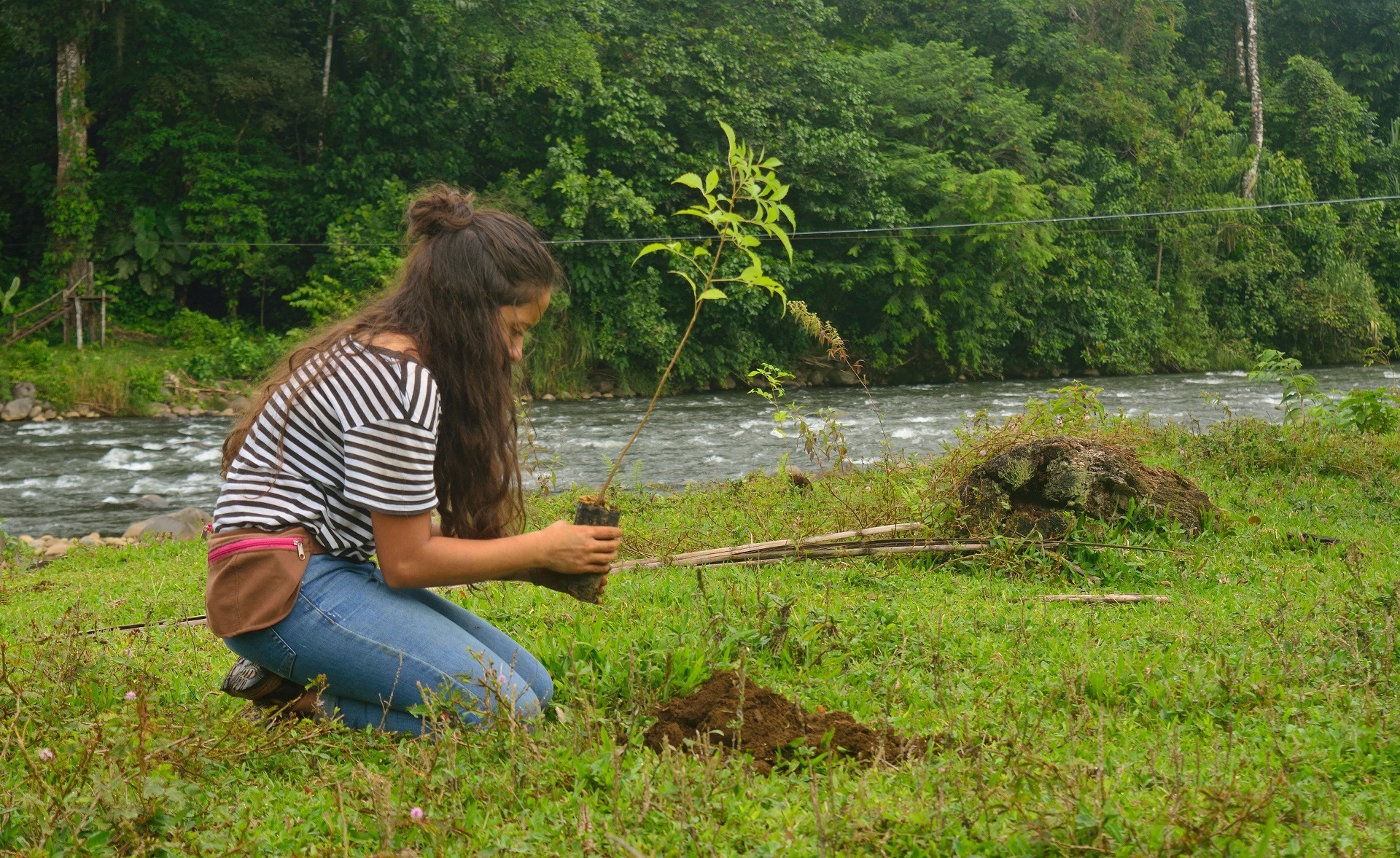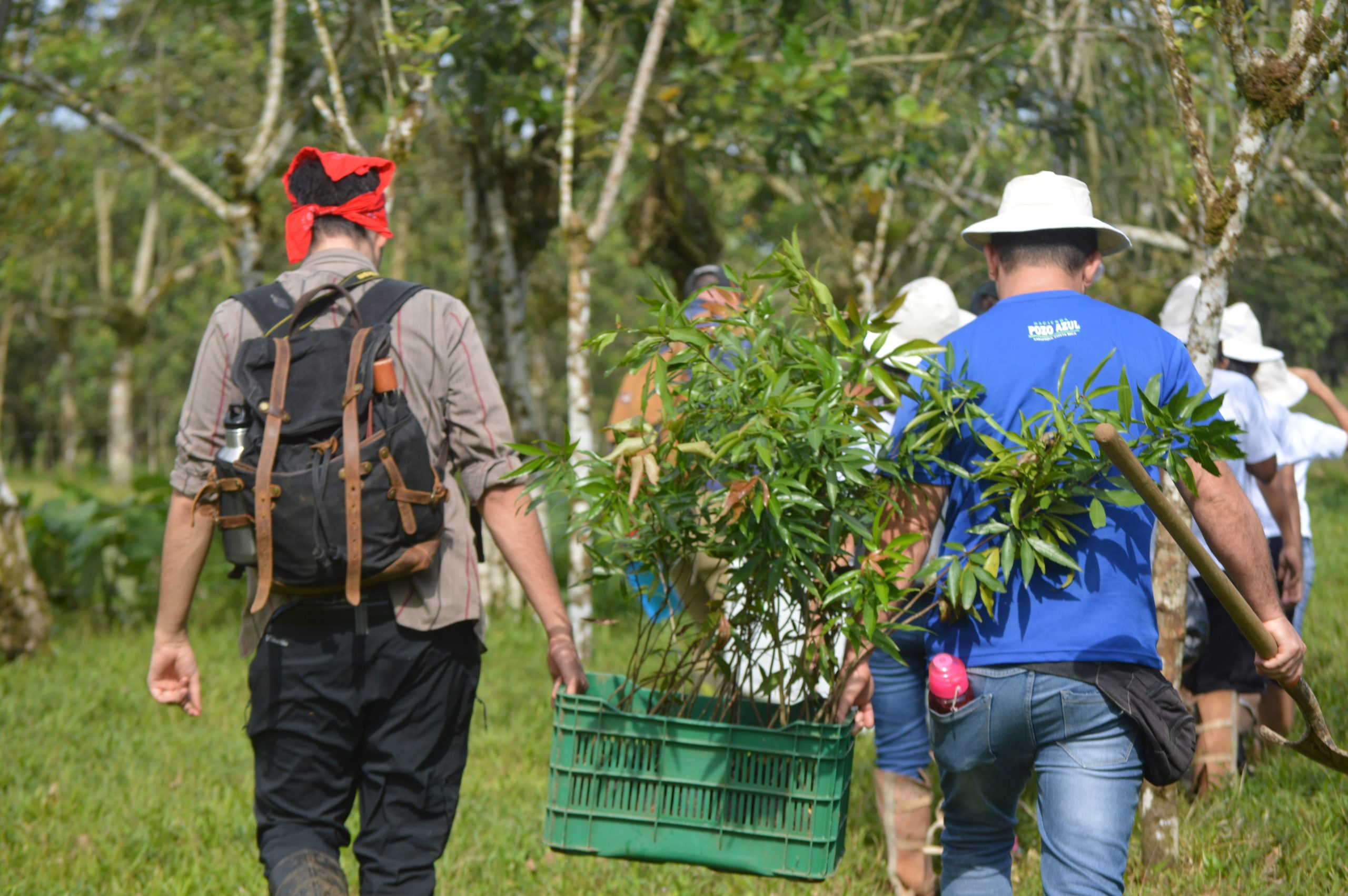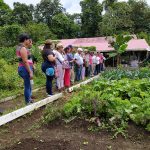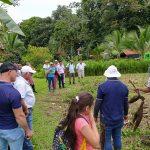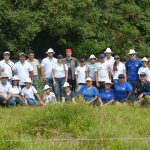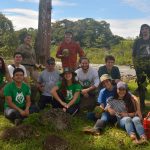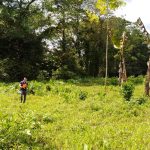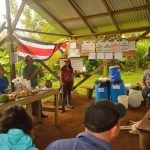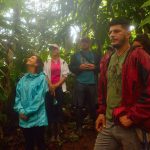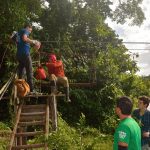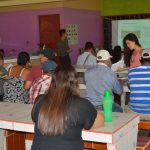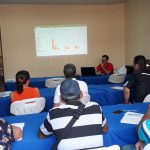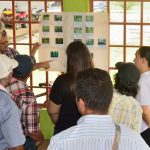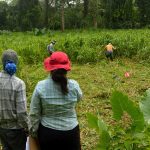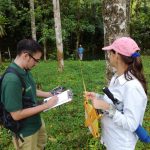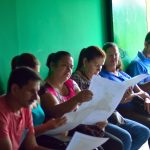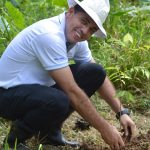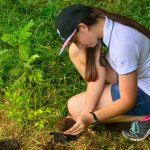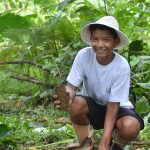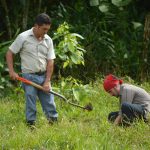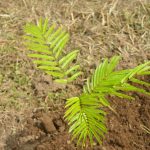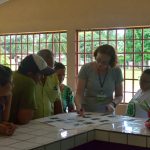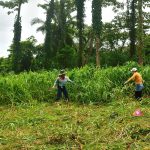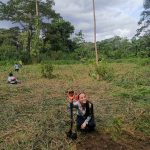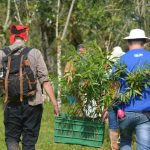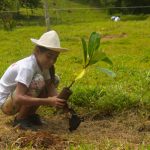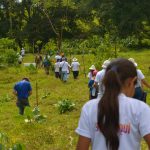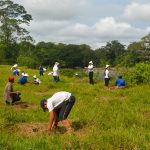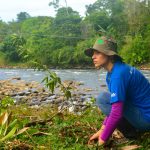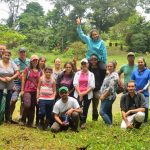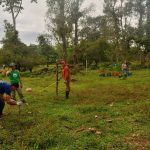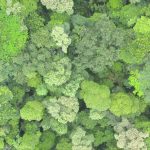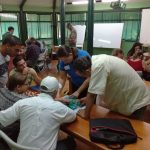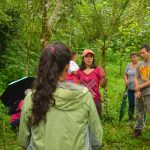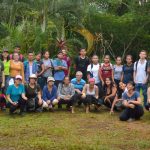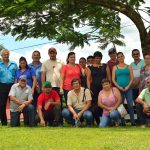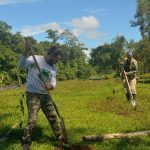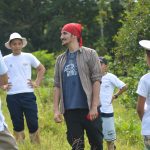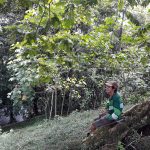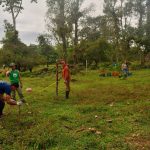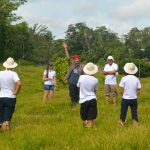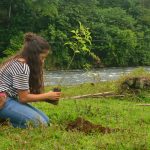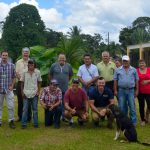The Project
The Biological Corridors and Citizen Science program (known in Spanish as “Proyecto Valores”) is a community extension program of La Selva Biological Station that currently benefits farmers and other stakeholders in several communities of Sarapiquí. Our goal is to contribute to the implementation of the San Juan-La Selva Biological Corridor through environmental education programs, riverine forest restoration and the creation of sustainable development models in private farms.
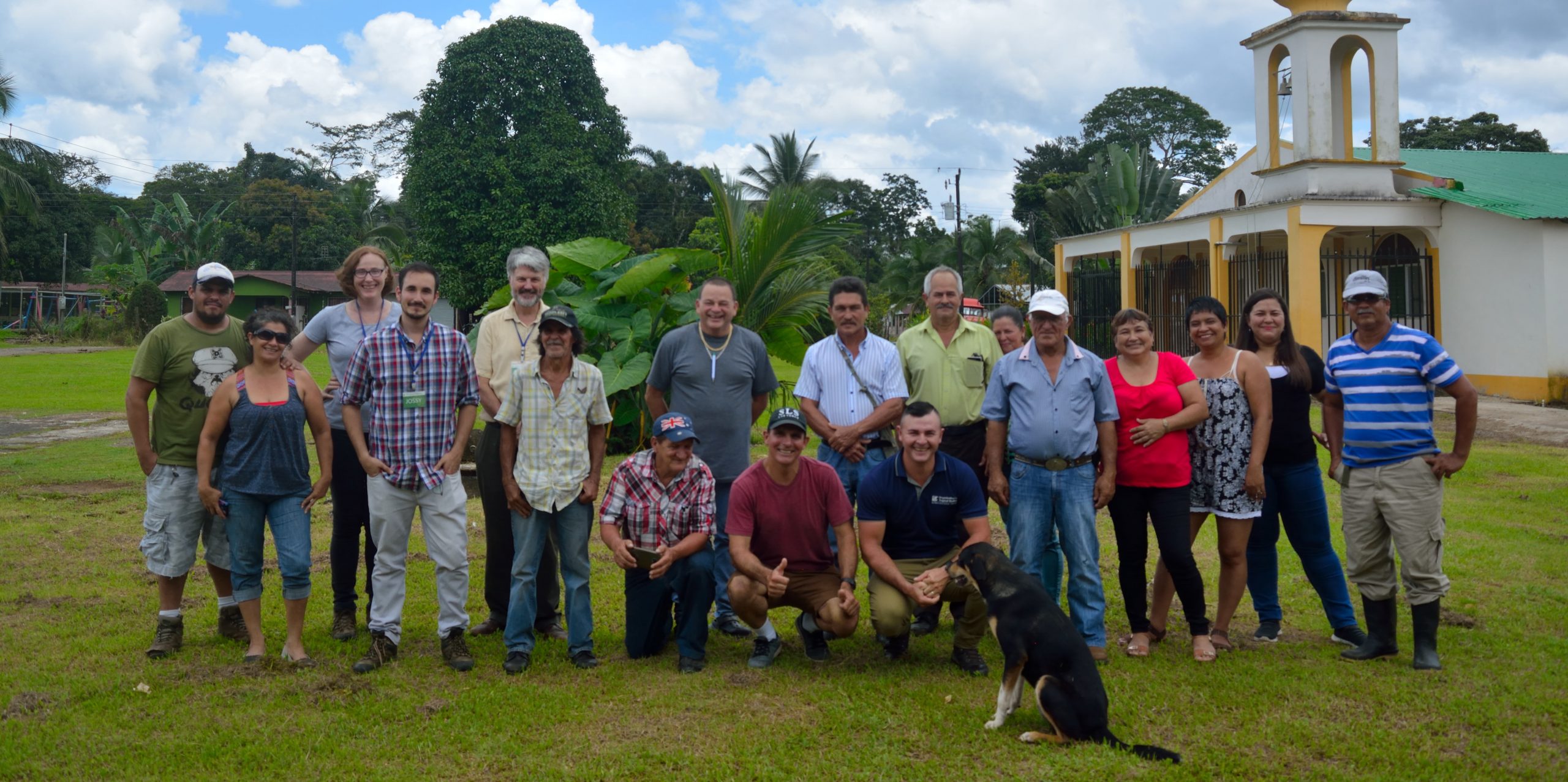
About us
La Selva Biological Station and a team of scientists from different institutions lead the program:
- Project Manager: Lic. Jossy Calvo
- Technical Team; PhD Amanda Wendt (OTS, PI), PhD Robin Chazdon (University of Connecticut), PhD Alex Gilman (Spring Farm), and M.Sc. Paul Foster (Bijagual Ecological Reserve).
- Restoration and communal liaison assistant: Edgar Hernández
Contact us for more information: jossy.calvo@tropicalstudies.org
Why is relevant?
The conservation and sustainable management of Costa Rica’s forests, as well as the protection of riparian forests are issues of high national importance. However, without economic and social incentives for forest conservation by small farmers or landowners crossed by rivers, the only options for them are the conversion to intensive cattle, monocultures such as pineapple or other crops, which contribute little to connectivity or maintenance of local biodiversity. The key to private conservation lies in the full conviction of forest owners that their forests have value not only for society, but also for themselves as citizens and farm owners. This is why, since 2017, Proyecto Valores promotes the restoration and conservation of the tropical rain forest of the San Juan-La Selva Biological Corridor by creating a model of farmer-led forest conservation and restoration in communities near La Selva in Sarapiquí, Costa Rica.
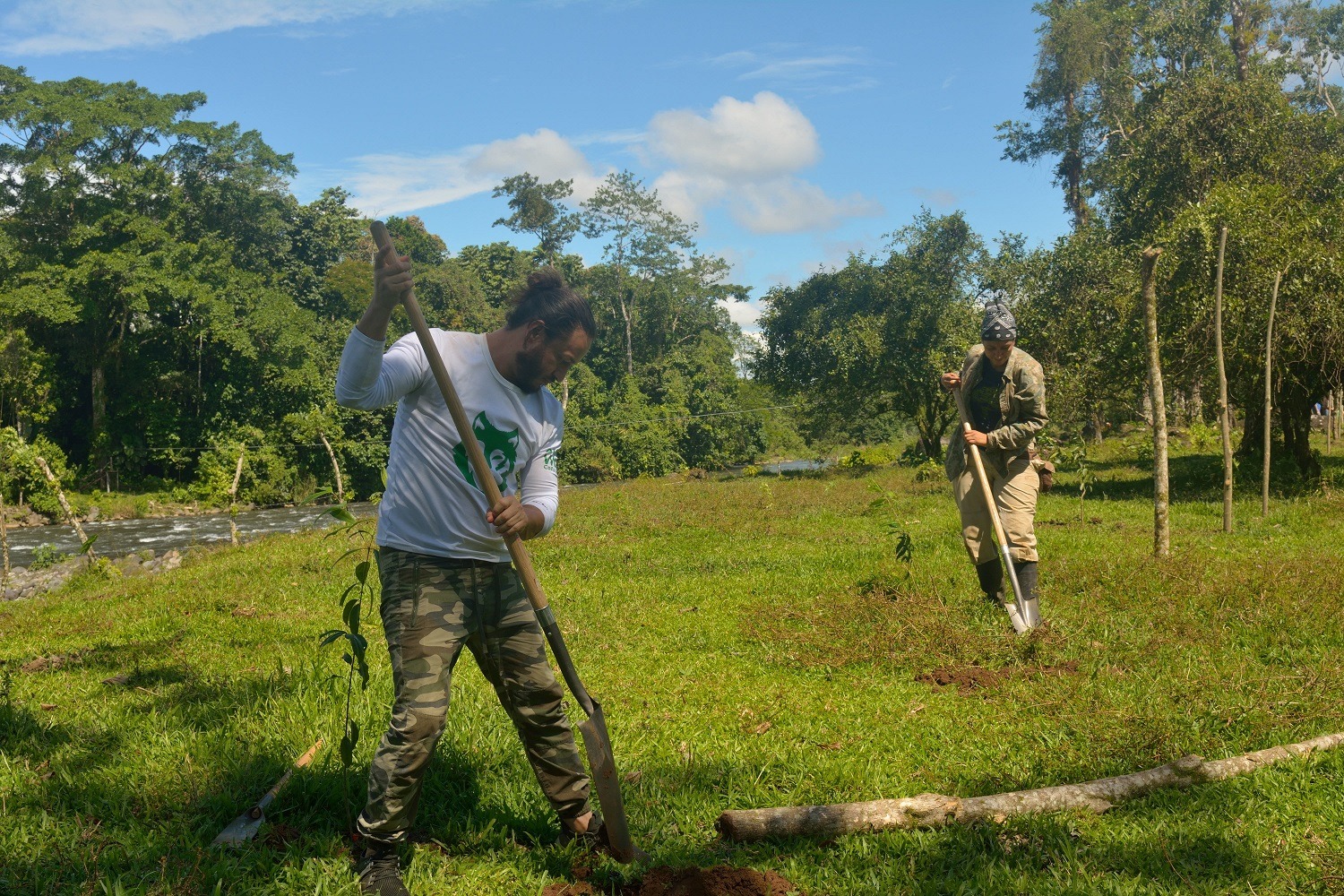
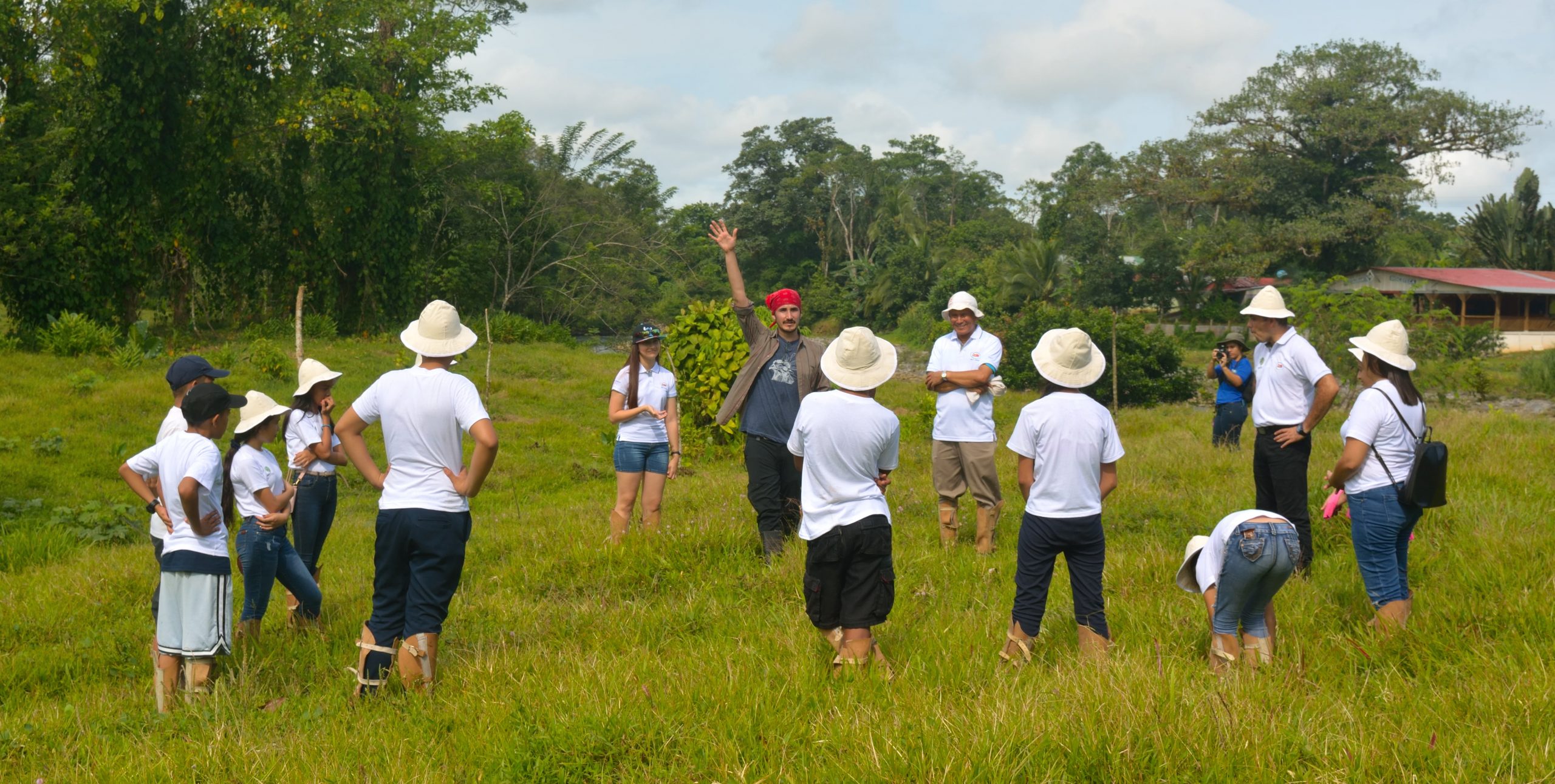
What do we do?
Environmental education:
Since 2017, the project has been conducting surveys and workshops with more than 188 farmers in 15 different communities, to understand how they perceive the forests and landscape of Sarapiquí. With this information is easier to elaborate more effective management strategies and environmental education programs in the communities, and thus, to foster a greater community involvement. So far, Proyecto Valores has carried out several environmental education activities and workshops about ecosystem services, the importance of biological corridors and restoration ecology techniques. In addition, we work on the creation of educational material such as the “Guía sobre beneficios ambientales de bosques y corredores ribereños de Sarapiquí”
Restoration ecology
So far, we have made significant progress in the restoration of riparian forests in 17 private farms. We have focused on three rivers in the area that offer biological connectivity with important protected areas in the region; the Sarapiquí, Tirimbina and Bijagual Rivers. These river restoration programs are also essential to reduced contamination from cattle activities, sediment input, reduced downstream flooding and flash flood risks that are common in Sarapiquí.
The work carried out so far, includes the construction of more than 2 miles of fences on farms with cattle (to allocate forest restoration areas), planting more than 635 native trees, and the management of about 2.5 hectares of exotic and invasive pastures (Paspalum fasciculatum). These activities are contributing to the regeneration of over 7.3 hectares of riparian forest and springs of these rivers.
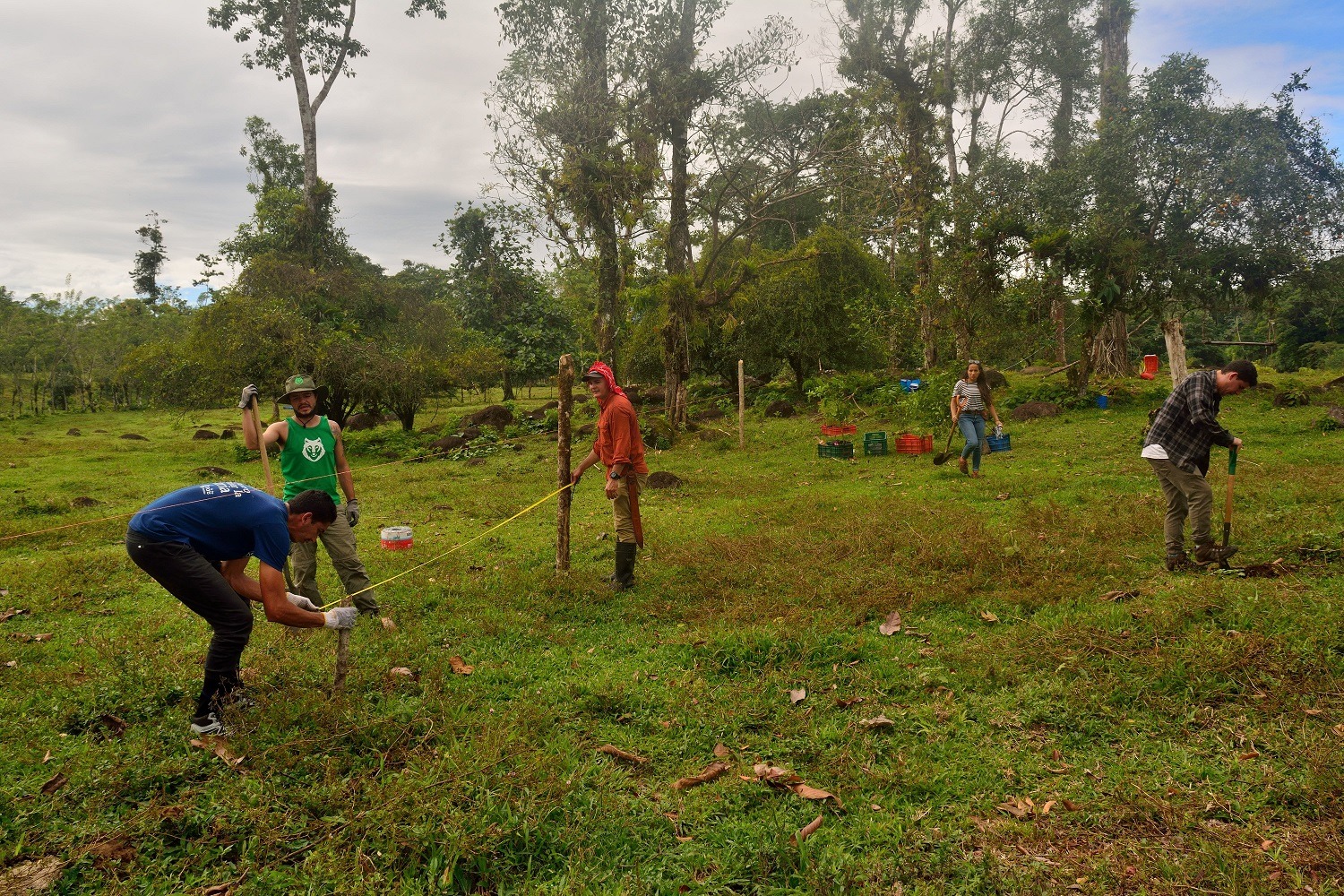
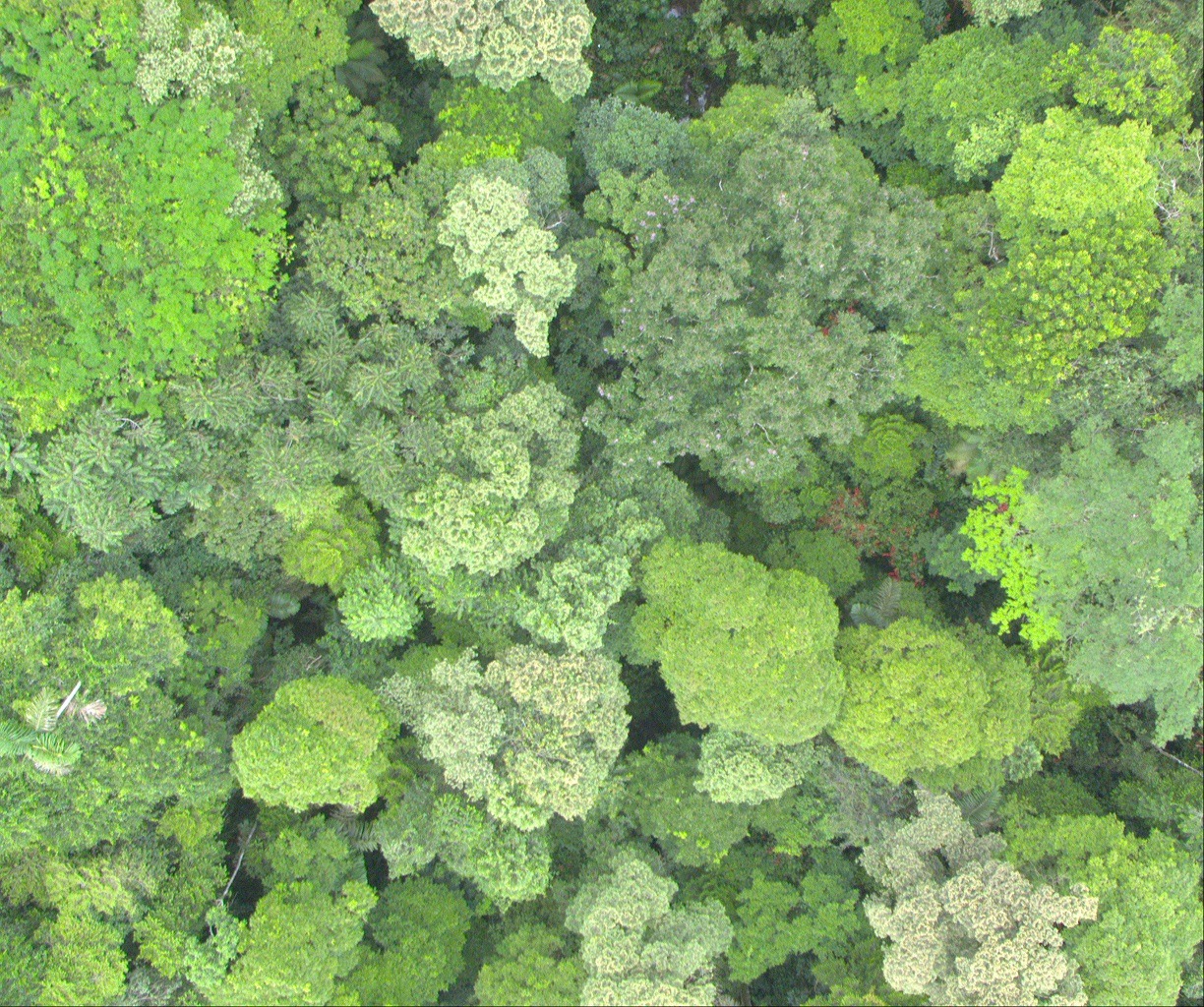
Research
A team of scientists, who are very committed to the conservation of the tropical forest and the well-being of the communities, leads the program. For instance, one member of the technical team, Dr. Robin Chazdon, contributes information from her long-term research on forest regeneration in Sarapiquí to inform many of the educational materials. The program also receives support from scientists such as Dr. Matthew Fagan of the University of Maryland Baltimore County (USA) and Dr. Eben Broadbent and Dr. Angelica Almeyda of the University of Florida (USA). The scientists collaborate with studies on land use spatial analysis, riparian forest structure and ecosystem services of agritourism.
Community management models
One of the biggest challenges that the project faces is to support the implementation of farmer-based coalitions. We are aware that the only way these farms could succeed over time is by giving them the necessary opportunities and tools to maintain or innovate in an environmentally and economically changing world. Proyecto Valores works on promoting the creation of private farms consortiums and strengthen them sustainability models and landowner-led forest monitoring, which really lead to an empowerment of communal groups and long-term projects sustainability. So far, 50 farmers in the project have started to formalize the creation of three community management consortiums in three Sarapiquí districts. Nevertheless, we are still working in strengthen their capacity for self-management.
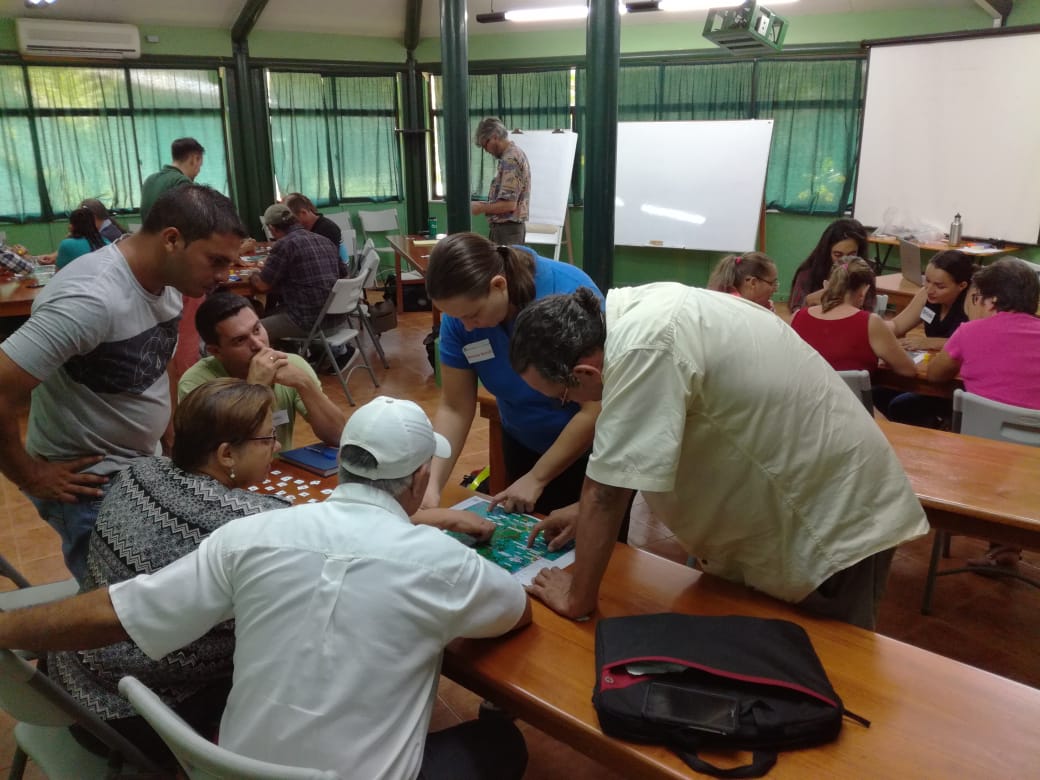
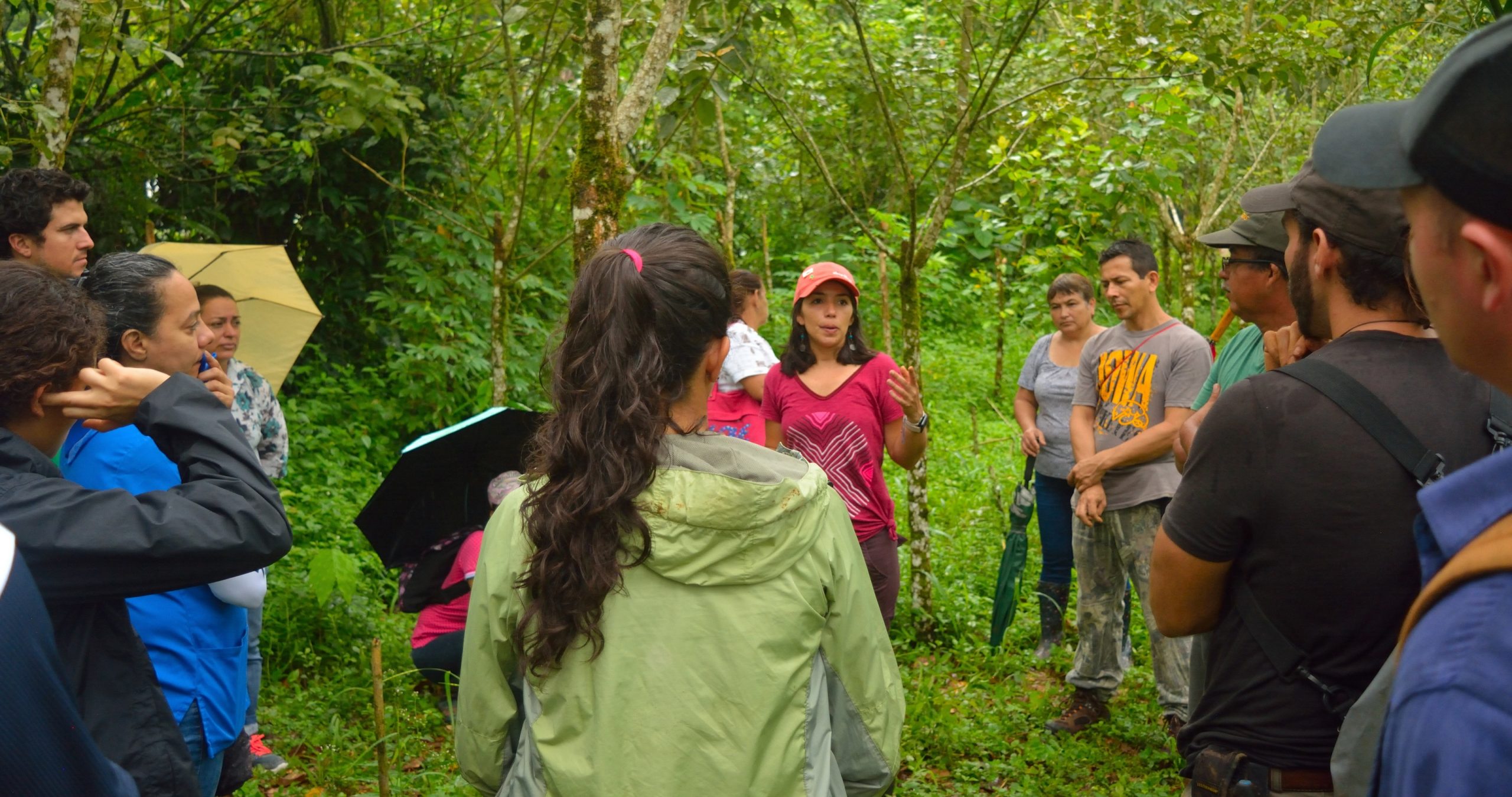
Be part of Valores
We need more research, management and monitoring for the conservation of this heterogeneous landscape formed by the wet tropical forests and the agricultural farms of the region. These sites are perfect to create a custom study abroad program, workshops, or other work events, that contribute to the scientific knowledge, conservation and a better life quality for the farmers. We encourage institutions, researchers and internships to be part and collaborate with Proyecto Valores.
Collaborators
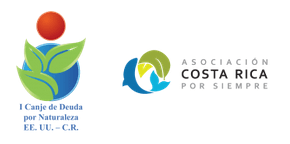
We also, deeply appreciate the collaboration of local institutions and foundations:
- Proyecto Guarumo is an important collaborator of the project; helping us with restoration ecology activities, managing volunteer programs and workshops.
- For the restoration in private farms, we have had the participation of 75 volunteers from institutions like Naranjal School, San José del Río High School, Universidad Nacional de Costa Rica, Rustic Pathwais, San Ramón ASADA, Community Development Associations, Dole, Hacienda Pozo Azul, GreenWolf and One Hand.
- In addition, we work with governmental institutions as FONAFIFO and Oficina Nacional Forestal. They collaborate with workshops and assistance related to payments for environmental services programs (PES), as an incentive for the forest conservation in private farms.
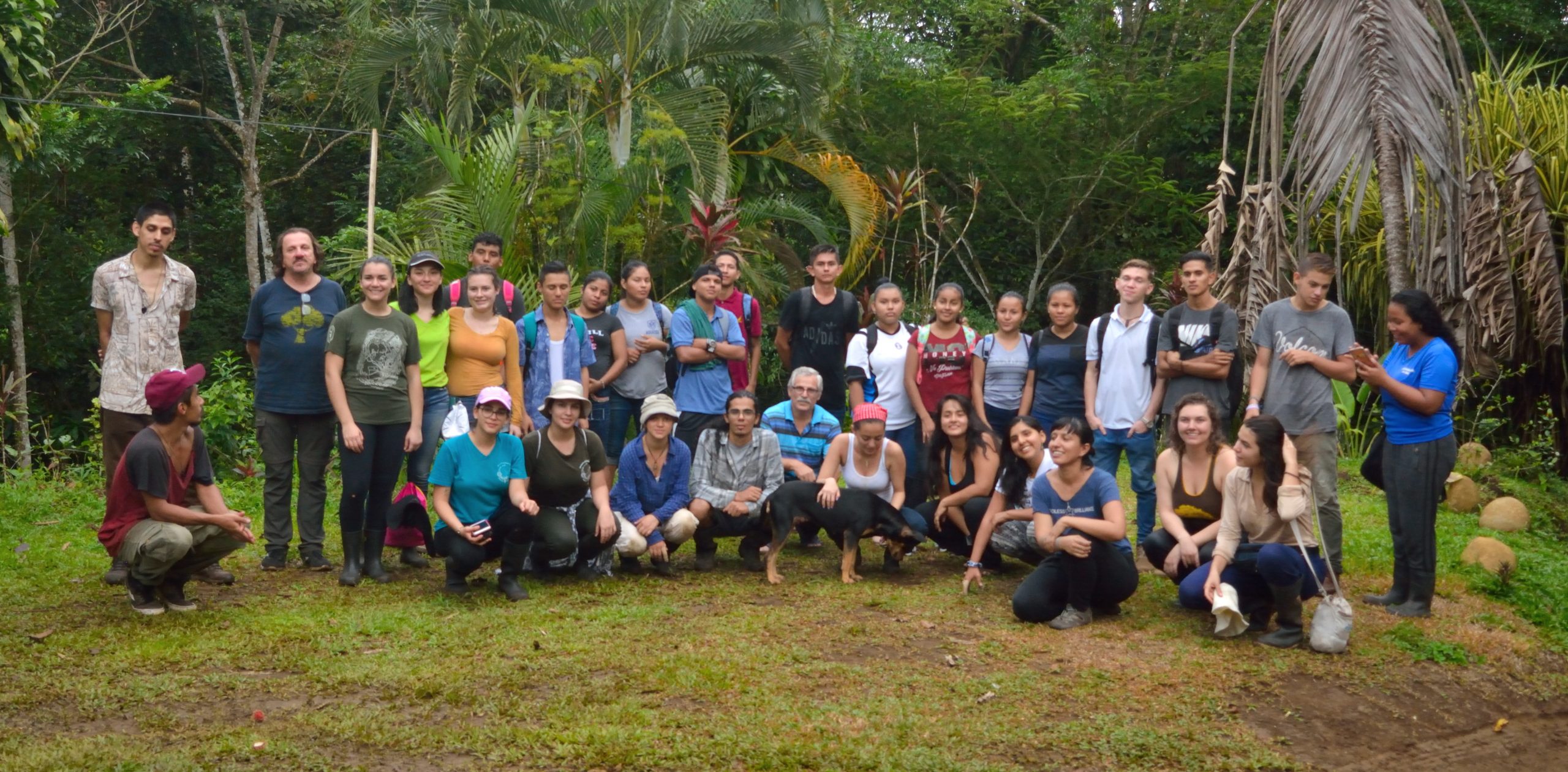
News
Valores Project continues supporting farmers who are interested in implementing sustainable agricultural practices. We contribute to the San Juan-La Selva Biological Corridor, not only assisting in forest restoration activities but also training farmers in producing without adversely affecting biodiversity.
We know that the field is the best classroom, so that is why part of our activities consists of visiting successful agro-ecological farms. During the tours, we learn and develop topics such as production of organic fertilizers and insecticides, proper soil management, crop rotation and rural tourism. In addition to preserving the environment, these opportunities can also generate inputs and economic income for families.
On this occasion, the March 7th, we visited “Finca Orgánica Don Juan” and had the participation of 30 farmers from communities such as La Virgen, San Ramón, El Roble, La Conquista and Horquetas. This practical and experiential approach is vital in the learning process. Without the project, many farmers would not have the opportunity to learn about these projects, and in turn we promote concepts such as “learning by doing” and sharing knowledge in a “farmer to farmer” way.
The participants left the tour highly motivated and with more knowledge to continue implementing sustainable practices.
“Visiting this farm was a really nice experience and we are very grateful to the Valores Project for making these workshops possible,” said Roxinia, a farmer from San Ramón, La Virgen.
“For me, to be here is to realize that I am in the right place. Forest and nature have great spiritual value; they transmit a lot of peace. It is important to recognize and learn how we can conserve them while producing,” said Orlando Salas, another participant farmer of the Project.
To s